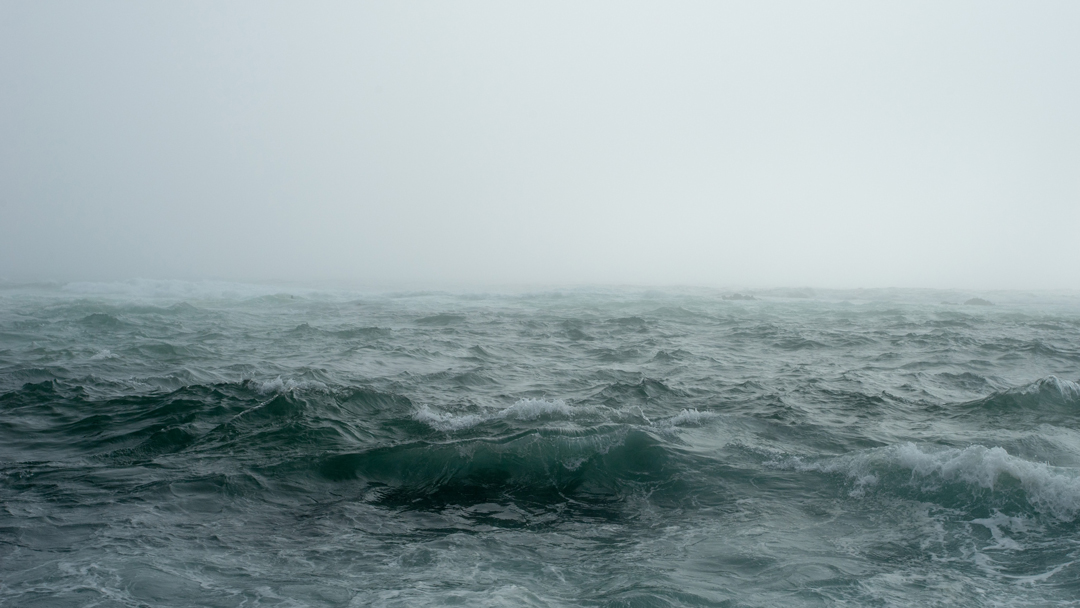Big Storm, Bigger God
- Steve Hatter

As many of you may know, I am actively pursuing seminary training through The Master’s Seminary (TMS) Distance location program we have at AGC. I have been much blessed to benefit from this offering, and I trust I have become a better pastor/teacher. I still have a long way to go to graduate, but I am committed and grateful for the opportunity to gain in my skills and knowledge to serve our Lord, and you, more effectively in full-time ministry.
One of the most challenging realities of the TMS program is achieving exegetical proficiency in Hebrew and Greek. Suffice to say that learning any new language from a zero-knowledge base in tough by any measure. I find it a great (Mrs. Hatter might choose a different descriptor…painful?) personal challenge that is not absent significant stress! However, my plodding in Greek over the last year now has me translating the Gospel of Mark— as I tread now into third semester Greek exegesis—at the pace of one full chapter a week. This past week I worked on Mark 4, which contains the narrative of Jesus calming the storm on the Sea of Galilee. Here is the ESV translation of that amazing claim:
On that day, when evening had come, he said to them, “Let us go across to the other side.” And leaving the crowd, they took him with them in the boat, just as he was. And other boats were with him. And a great windstorm arose, and the waves were breaking into the boat, so that the boat was already filling. But he was in the stern, asleep on the cushion. And they woke him and said to him, “Teacher, do you not care that we are perishing?” And he awoke and rebuked the wind and said to the sea, “Peace! Be still!” And the wind ceased, and there was a great calm. He said to them, “Why are you so afraid? Have you still no faith?” And they were filled with great fear and said to one another, “Who then is this, that even the wind and the sea obey him?” (Mark 4:35–41)
Well, my seminary student translation ended a bit more “wooden” than the polished ESV. Still, as I parsed all of the verbs and arranged the prose into proper phrasing, the main idea of the passage nearly leaped out and slapped me in my studious squinting face: Jesus Christ is God, and He easily commands nature. So, what more do you need to know?
The disciples—who always do a marvelous job of representing all of us in their less than impressive response to discovering the awesomeness of Jesus Christ, played their slow-to-fully-grasp role perfectly. Jesus had already accomplished a significant number of healing miracles, he had preached masterfully to massive crowds, he had cast out demons, and he had taken on the Jewish authorities. The disciples were eye-witnesses to all of these things. Yet, instead of trusting themselves to him in faith amid a maelstrom that brought water into their boat, they panicked. Interestingly, the storm, frightening as it was, did not even serve to wake the sleeping Jesus. What a contrast!
Gripped in terror, they woke Jesus up, and sadly, they challenged His character! “Teacher, do you not care that we are perishing?” He rightly challenged them on their cowardice and small thinking: “Why are you so afraid? Have you still no faith?”
Wow, what a spear to the heart! Jesus is saying to them first, that He is who they know Him to be…Messiah. He is also saying to them that faith and fear cannot exist together. With two piercing questions, He sought whether they believed He was the promised Redeemer of all Scripture; and He asked whether this sufficed to be enough to rest in all circumstances. Faith is described in Hebrews 11:1 as being “certain of what we do not see.” It is an absolute belief that God is continually working behind the scenes in every area of our lives, even when there is no tangible evidence to support that fact.
On the other hand, fear, simply stated, is unbelief or weak belief. As unbelief gains the upper hand in our thoughts, fear takes hold of our emotions. Our deliverance from fear and worry is based on faith, which is the very opposite of unbelief.
As Christians living in 2020, we need to understand that faith is not something that we can produce in ourselves. Faith is a gift (Ephesians 2:8-9), and faithfulness is described as a fruit (or characteristic) that is produced in our lives by the Holy Spirit (Galatians 5:22–23). The Christian’s faith is a confident assurance in a God who loves us, who knows our thoughts, who knows every detail of our circumstances, and who cares about our deepest needs.
Are you questioning God’s character in the storm of the pandemic, racial division, and political uncertainty? Are you demanding He “wake up” to your personal whirlwind? Are you putting His attributes, motives, and promises on trial? Fear will drive you there. We are an entire culture consumed by fear in our present national circumstances, which does not honor God.
However, faith, like repentance, will stop you in your worrying tracks and reverse your course to blessed reassurance in all circumstances. I, for one, am glad the disciples woke Jesus up so that Mark could record an amazing Word for me today.
Have faith, fellow traveler, God has got this.










